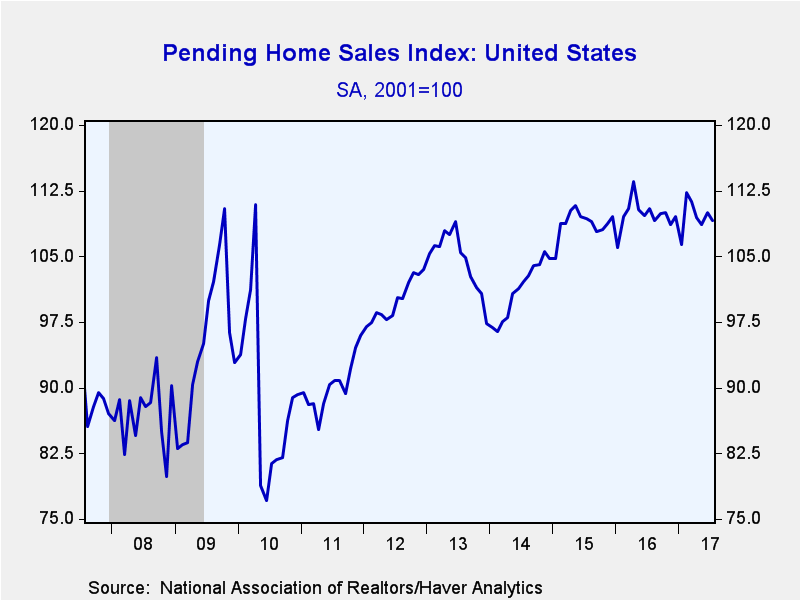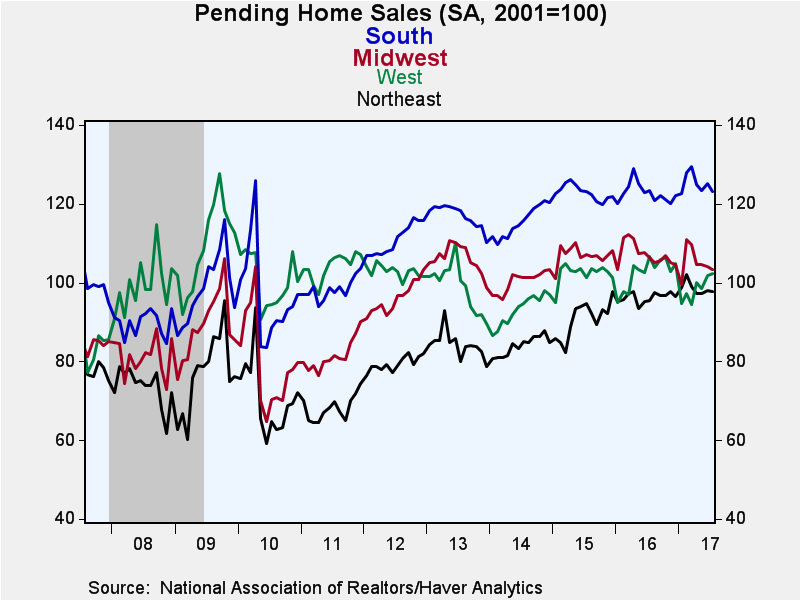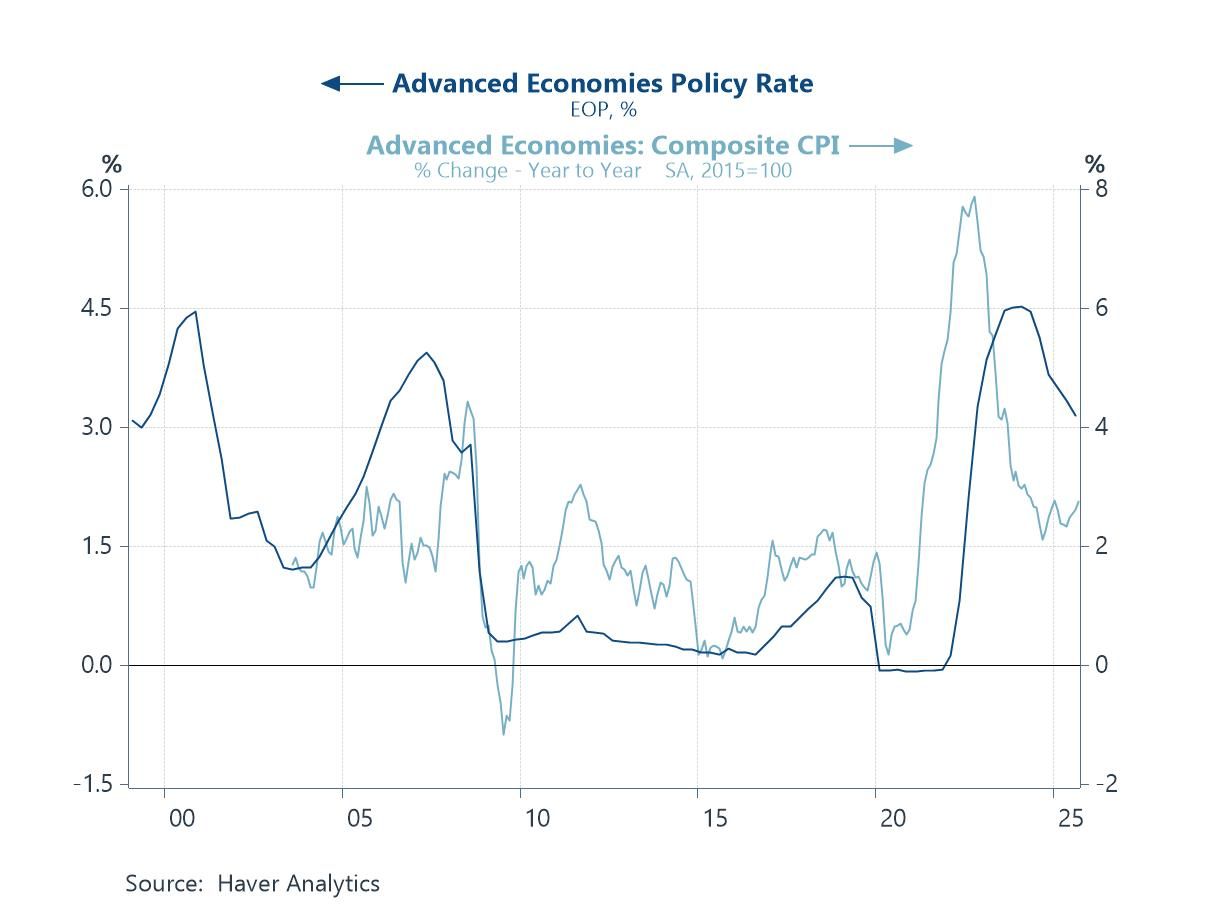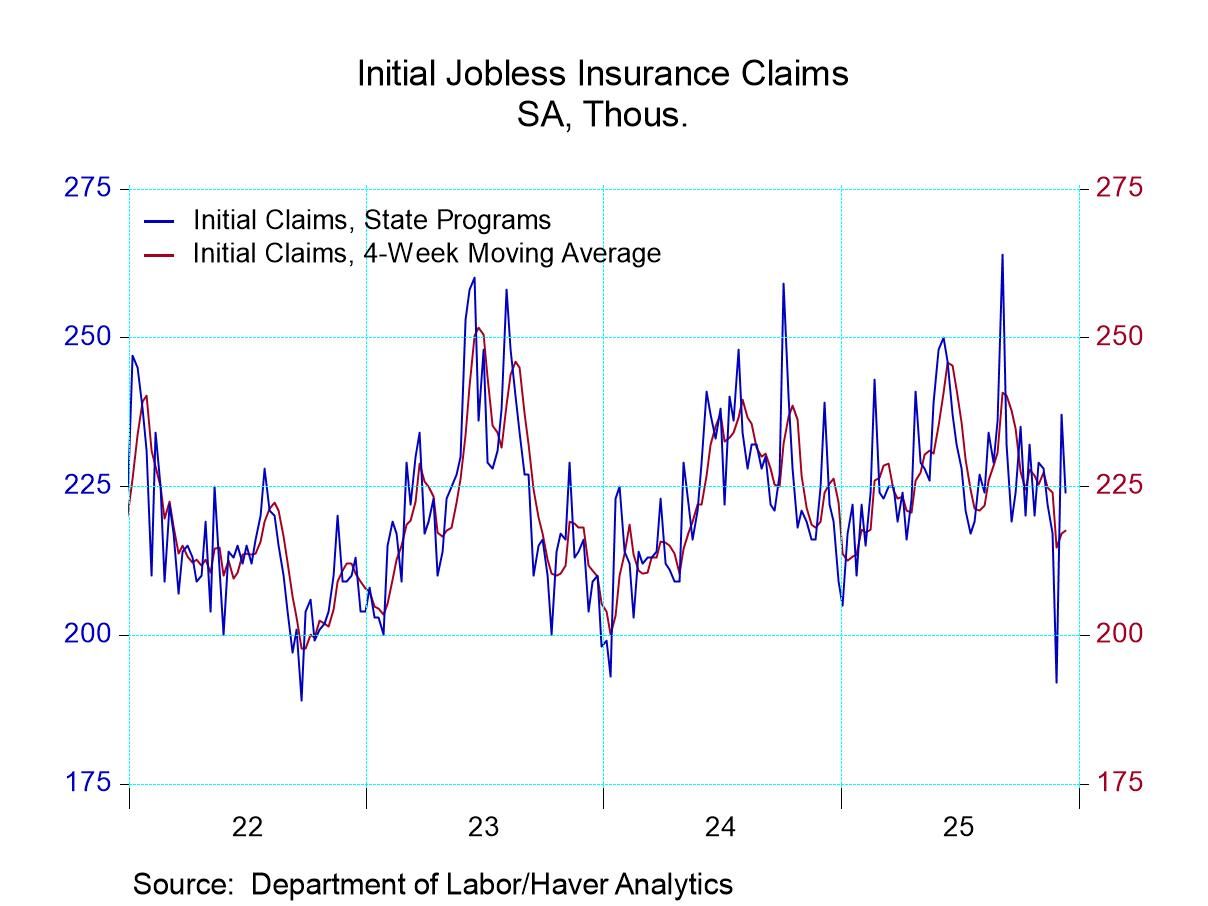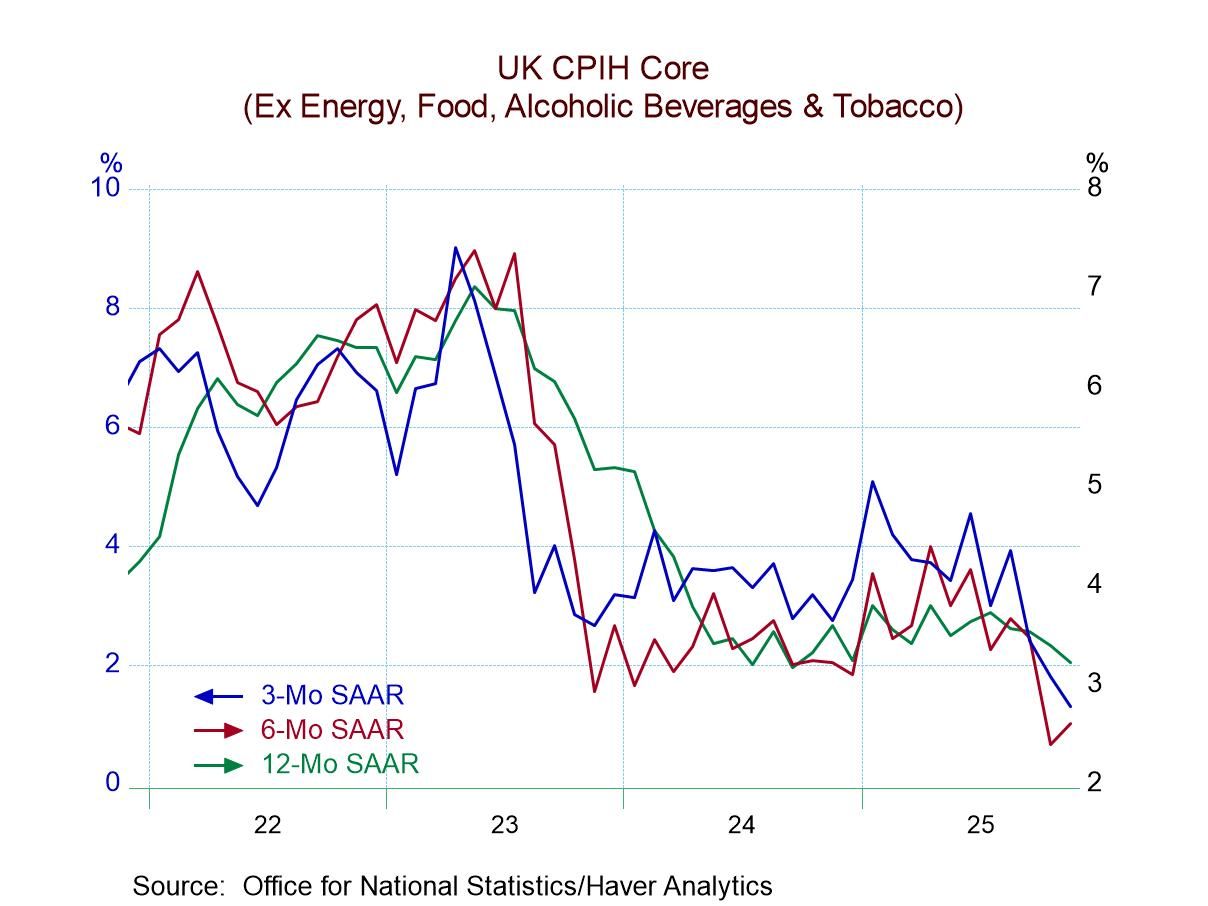 Global| Aug 31 2017
Global| Aug 31 2017U.S. Pending Home Sales Slip
by:Tom Moeller
|in:Economy in Brief
Summary
The National Association of Realtors (NAR) reported that pending home sales eased 0.8% (-1.3% y/y) during July to an index level of 109.1 (2001=100). It was the fifth monthly decline this year, and left sales 4.0% below the peak [...]
The National Association of Realtors (NAR) reported that pending home sales eased 0.8% (-1.3% y/y) during July to an index level of 109.1 (2001=100). It was the fifth monthly decline this year, and left sales 4.0% below the peak during April 2016.
Pending sales were mixed m/m across regions. The index for the West improved 0.6% (-4.0% y/y) to the highest level since December. Elsewhere in the country sales fell. For the South, the index declined 1.7% (-0.2% y/y) to the lowest level since January. The index for the Midwest eased 0.7% (-2.8% y/y), also to the lowest level since January. The index in the Northeast slipped 0.3% (+2.4% y/y) following two months of slight increase.
The pending home sales index measures home sales when the sales contract is signed, analogous to the new home sales report. In contrast, existing home sales are recorded when the sale is closed. In developing the pending home sales index, the NAR found that the level of monthly sales contract activity parallels the level of closed existing home sales in the following two months. The series dates back to 2001, and the data are available in Haver's PREALTOR database.
| Pending Home Sales (SA, 2001=100) | Jul | Jun | May | Jul Y/Y % | 2016 | 2015 | 2014 |
|---|---|---|---|---|---|---|---|
| Total | 109.1 | 110.0 | 108.6 | -1.3 | 109.8 | 108.8 | 101.2 |
| Northeast | 97.7 | 98.0 | 97.3 | 2.4 | 96.3 | 90.7 | 83.9 |
| Midwest | 103.3 | 104.0 | 104.5 | -2.8 | 107.3 | 107.1 | 100.3 |
| South | 123.1 | 125.2 | 123.4 | -0.2 | 122.8 | 123.0 | 115.5 |
| West | 102.3 | 101.7 | 98.6 | -4.0 | 102.5 | 102.4 | 93.1 |
Tom Moeller
AuthorMore in Author Profile »Prior to joining Haver Analytics in 2000, Mr. Moeller worked as the Economist at Chancellor Capital Management from 1985 to 1999. There, he developed comprehensive economic forecasts and interpreted economic data for equity and fixed income portfolio managers. Also at Chancellor, Mr. Moeller worked as an equity analyst and was responsible for researching and rating companies in the economically sensitive automobile and housing industries for investment in Chancellor’s equity portfolio. Prior to joining Chancellor, Mr. Moeller was an Economist at Citibank from 1979 to 1984. He also analyzed pricing behavior in the metals industry for the Council on Wage and Price Stability in Washington, D.C. In 1999, Mr. Moeller received the award for most accurate forecast from the Forecasters' Club of New York. From 1990 to 1992 he was President of the New York Association for Business Economists. Mr. Moeller earned an M.B.A. in Finance from Fordham University, where he graduated in 1987. He holds a Bachelor of Arts in Economics from George Washington University.


